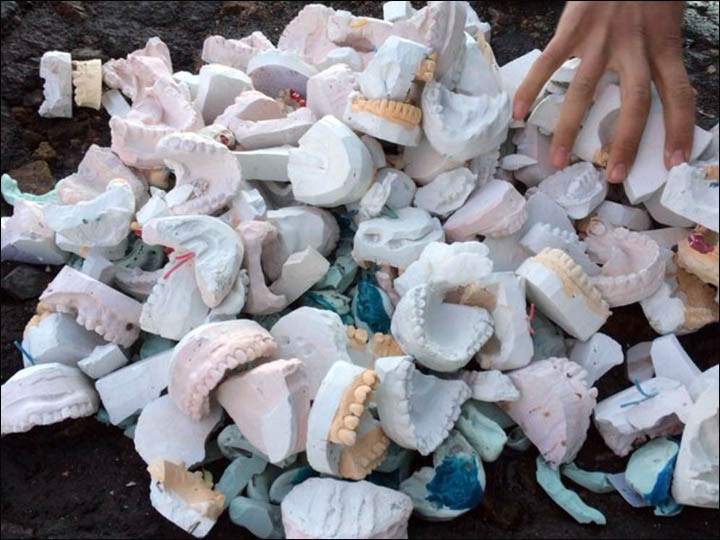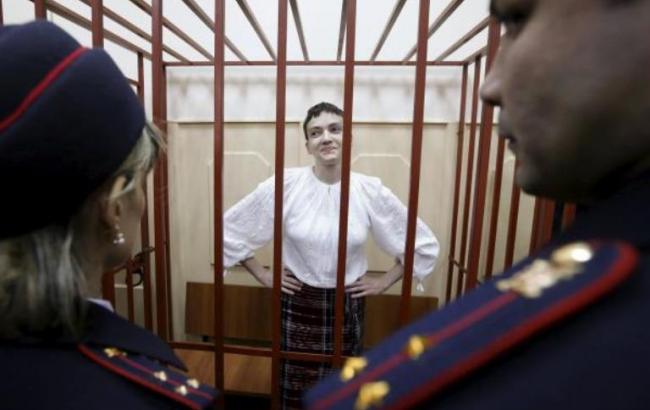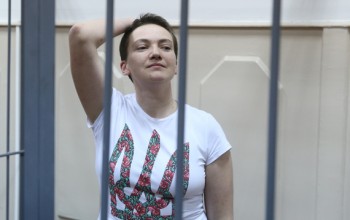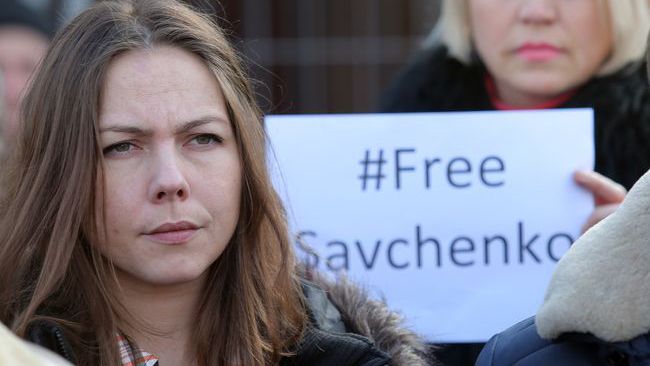The flood of news stories from a country as large, diverse and strange as the Russian Federation often appears to be is far too large for anyone to keep up with. But there needs to be a way to mark those which can’t be discussed in detail but which are too indicative of broader developments to ignore.
Consequently, Windows on Eurasia presents a selection of 13 of these other and typically neglected stories at the end of each week. This is the 33rd such compilation. It is only suggestive and far from complete – indeed, once again, one could have put out such a listing every day — but perhaps one or more of these stories will prove of broader interest.
- Top Headlines of the Week: ‘Hope Leaves Russia’ and ‘Hope Returns to Ukraine.’ Nadezhda Savchenko, whose first name means “hope,” has finally been allowed to return to her homeland.
- Putin Says He Won’t Sell Kuriles But is ‘Always Ready’ to Buy Parts of Other Countries. Reacting to rumors that he might sell the Kuriles Islands back to Japan to raise money, Vladimir Putin says he won’t sell them but adds that he is always ready to buy parts of other countries. In a related development, Moscow media report that the Russian military may establish a base in the Kuriles.
- Medvedev’s ‘There’s No Money but Have a Nice Day’ Line Sparks Anger and Humor. The Russian prime minister’s comment in occupied Crimea that Moscow has no money to solve many problems but that people should simply carry on as best they can has sparked anger and dismissive humor among Russians.
- 30 Russian Firms Now Going Bankrupt Every Day. Despite the Kremlin’s upbeat remarks, the Russian economy is in bad shape and getting worse. “Nezavisimaya gazeta” reports that 30 Russian firms are now declaring bankruptcy every day, and other outlets note that Russians are cutting back on food, furniture and appliances as well as larger durable goods. Among the country’s five million “new poor,” the situation is getting desperate. In Perm, a woman hanged her daughter and then herself because she had no money for food.
- Cynicism Not Conflict Main Result of the United Russia Primaries. Many expected that even the new primaries would intensify class and ethnic conflicts, but in fact, they seem to have produced an overriding sense of cynicism among Russians. Falsifications were rampant, Russian officials in Orwellian terms suggested Chechnya was a model of the democracy to which Russians should aspire, some commentators floated suggestions to allow war dead to vote in future elections, and those who tried to expose corruption were treated harshly: in Kamchatka, some tried to drown a man who complained about voting irregularities.
- Patriarch Kirill Says Soviet Union was ‘More Christian than West Today.’ The head of the Russian Orthodox Church continued his rapprochement with all things Soviet: he argued that the USSR was based on “Christian morality” and that it was “more Christian” than are today’s Western countries. Later, he added that the appearance of English words in Russian is “a very bad thing.”
- Anti-Semitism Spreading in Russia. Just as many experts had predicted, the hostility that the Russian regime and media have directed at “people from the North Caucasus,” gastarbeiters and Ukrainians is now leading some Russians to engage in ugly forms of anti-Semitism, including calls for “defending Russian science” against Jews and attempts to burn a synagogue under construction in Arkhangelsk.
- Siberian Dentists Forced to Fill Potholes with Plaster Casts of Their Patients’ Jaws. The roads in Russia are so bad and the Russian government is doing so little about it that people are taking things into their own hands in intriguing ways. In Siberia, dentists have been filling the potholes in roads with plaster casts of their patients’ jaws. Meanwhile, at a time when many of Russia’s bridges are collapsing, no repairs are scheduled because Moscow has transferred all bridge construction materials to complete its Kerch bridge to Russian-occupied Crimea.
- Duma Makes Studying Public Opinion a Political Activity. The Russian parliament continued to come up with ideas and even passing laws that never cease to amaze. It has voted to make the study of public opinion a political activity and thus subject to controls. Other Russian officials are pressing for making Internet mirror sites illegal and imposing punishment on those who fail to stand when the Russian national anthem is sung.
- Faced With Doping Scandal, Moscow Hires Western PR Firm. Faced with the prospect that it may be prevented from sending athletes to the Rio Olympics or to host the 2018 World Cup because of the doping scandal, the Russian government has done what many do when faced with such problems: it has hired a Western PR firm to put the best face on an awful situation.
- Soviet-Style Pre-Induction Military Training Returning to Russian Schools. In Soviet times, in order to keep the length of military service down and thus not harm the economy, Moscow used pre-induction military instruction in the schools so young draftees would come to the colors with some military skills. Now the Russian government has decided to restore that system.
- Despite Kremlin Claims, Russians are Drinking More, Not Less. Sociologists have found on the basis of detailed surveys that Russians have increased their consumption of alcohol, not cut it as Kremlin-controlled outlets have been insisting.
- De-Communization Just Another Word for De-Russification and De-Russification for Russsophobia, Moscow Commentators Say. Confronted with the taking down of Soviet statues in former Soviet republics and bloc countries, Moscow commentators are insisting that “de-communization is just another word for de-Russification” and “de-Russificaiton is a polite word for Russophobia.”
And five more from countries elsewhere in Eurasia:
- Savchenko Not Only Political Prisoner Freed This Week or Last Behind Bars. Also freed this week – and on the same day obscuring its importance – was Azerbaijani journalist Khadija Ismayilova who had been jailed for more than 500 days for her work. And in the celebration of Savchenko’s release, it is important to remember that there are at least 11 more Ukrainian political prisoners in Russia and more than a hundred detained in Russian-occupied parts of the country.
- Local Ukrainian Officials, Not Communists Chief Obstacles to Renaming Effort. Kyiv’s directive that names with Soviet links be changed is being resisted more by local officials who are concerned about costs and confusion than by communists.
- Kazakhs Fear Russia Plans to Use Unrest in Kazakhstan Against Their Country. Many in Kazakhstan believe that Moscow has plans to exploit the unrest in Kazakhstan to return that country to a Russia orbit.
- Might Kazakh Protests Spread to Other Central Asian Countries? Other Central Asian countries have many of the same problems that Kazakhstan residents are protesting against, and this has sparked fears that the Kazakh example may spread first to Uzbekistan and then elsewhere.
- South Osetia Announces a Referendum Next Year on Becoming Part of Russian Federation. Officials in South Osetia say they will hold a vote in 2017 on whether to join the Russian Federation, something they have promised to do in the past but not carried out because of Moscow’s apparent reluctance to spark more tensions with the West over this breakaway part of Georgia.








